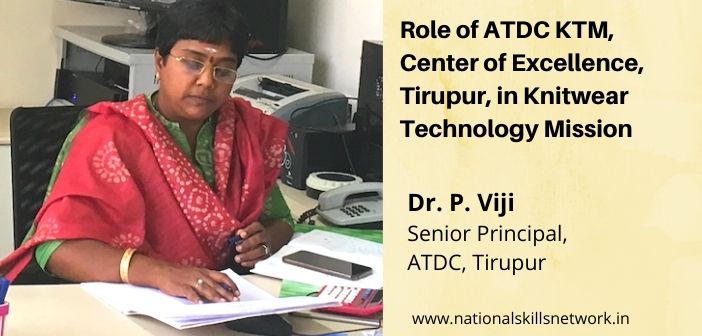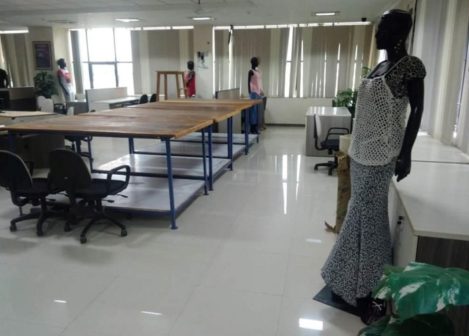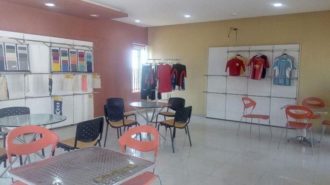Knitwear Technology Mission was set up to promote product and fabric diversification and value addition across the apparel value chain in India. Located in the “Garment hub of India” – Tirupur, ATDC Tirupur has set up a Centre of Excellence for training the workforce in the Knitwear technology, to contribute to the Knitwear Technology Mission. To get a deeper understanding of the subject of Knitwear, training of the workforce in terms of reskilling, upskilling and new skilling, we caught up with Dr. P Viji, Senior Principal, ATDC, Tirupur. Read on to know more about Knitwear fashion and technology.
Q: Please tell us about the Knitwear Technology Mission and how ATDC has set up a Center of Excellence in Tirupur.
A: Knitwear Technology Mission (KTM) is the brainchild of our parent organization Apparel Export Promotion Council (AEPC). Even though fashion garments made from man-made fibers are in great demand across the world, Indian exports majorly depend upon cotton. So, understanding the importance and demand for innovative fashion garments, we set up KTM to make garments made out of fibers like polyester and nylon.
On similar lines, we at ATDC have also set up a Centre of Excellence to serve the Knitwear Industry in Tirupur. Through our Center of Excellence, we promote innovations in knitwear and also focus on the development of human resources by training them in the latest technologies through various courses run at our center.
At ATDC Centre of Excellence, we focus on five major verticals:
- We offer a 3-Year B.VoC. degree program in Apparel and Fashion
- Promote 6 months merchandising program with special focus on “Knitwear’, under the banner of ‘AVI’
- Focus on Product Development, Testing and Technical Services for Knitwear Industry
- Take up Industry Projects and CE programs in Design, Technology, and Merchandising
- Train candidates in a specific skill set to meet industrial standards through Central and State government projects.
 Q: How does the knitwear industry ensure that the workforce is appropriately skilled and trained as per the industry requirements?
Q: How does the knitwear industry ensure that the workforce is appropriately skilled and trained as per the industry requirements?
A: The Knitwear industry looks for candidates with vocational skills suitable for the industry than a candidate who graduated with a general degree like B.A. or B.Sc. At ATDC, the individual’s skill sets are matched against each job role and the identified candidate is put on training. Even after the placement, during the training period of the candidate, his/her efficiency and capacity are recorded. Based on the report, further training inputs are provided to the candidates to match the industrial standards. This helps us in ensuring that our students are appropriately skilled as per the industry requirements.
Q: What are some of the most popular job roles in the knitwear industry and how can one build a long-term career in the industry?
A: When it comes to job roles in the Knitwear industry, Sewing Machine Operator is one of the most evergreen job roles. Every day we see examples of many Tailors becoming a small-scale entrepreneur. Apart from this, there is a requirement for various job roles in middle-level management. And these job roles keep increasing mainly due to technological advancements. Production Supervisor, Industrial Engineer, Merchandiser are few other job roles, where an individual gets a complete understanding of production techniques, buyer requirements, compliance, etc., which gives a long-term career growth within the industry.
Related Article: How ATDC ensures industrial exposure to its B.Voc. students – Read More: https://nationalskillsnetwork.in/how-atdc-ensures-industrial-exposure-to-its-b-voc-students/
Q: In terms of export, what are some of the quality standards that are rigorously followed and how are the candidates trained for it?
 A: At ATDC, quality standard starts from scratch. Right from the identification of fiber, yarn, knitting machines, the dyeing equipment, cutting techniques among others. As we are aware, the NSDC (National Skill Development Corporation) has identified 45 job roles for the Apparel and Home furnishing sector. These job roles are matched with National Occupational Standards (NOS) so that the skill development is practiced efficiently to produce a standardized end product i.e., skilled manpower. Our Director-General Dr. Darlie Koshy greatly emphasizes and insists on training the candidates as per Qualification Packs and NOS. With industry stimulated labs, digital contents and lecture delivery from experienced faculty members at ATDC, along with training through industrial visits, internships, on-the-job training, and the students become 100% ready to face the industrial challenges. We also take our students on international industrial visits to countries like Sri Lanka and Vietnam.
A: At ATDC, quality standard starts from scratch. Right from the identification of fiber, yarn, knitting machines, the dyeing equipment, cutting techniques among others. As we are aware, the NSDC (National Skill Development Corporation) has identified 45 job roles for the Apparel and Home furnishing sector. These job roles are matched with National Occupational Standards (NOS) so that the skill development is practiced efficiently to produce a standardized end product i.e., skilled manpower. Our Director-General Dr. Darlie Koshy greatly emphasizes and insists on training the candidates as per Qualification Packs and NOS. With industry stimulated labs, digital contents and lecture delivery from experienced faculty members at ATDC, along with training through industrial visits, internships, on-the-job training, and the students become 100% ready to face the industrial challenges. We also take our students on international industrial visits to countries like Sri Lanka and Vietnam.
Q: How has technology impacted the industry in terms of creating new jobs and phasing out a few job roles?
 A: Technology did impact many of the existing jobs in the apparel industry. But it was a positive impact. The apparel industry has experimented with new technologies like laser cutters, 3D – printing, and sew-bots. The potential use of robotics and automation technologies definitely increases productivity and quality. This implication is not only in the manufacturing sector but also in design, marketing, finance, logistics, and retail. We must accept the fact that the textile and clothing industries are undergoing a silent revolution with regard to the development and use of new materials. On one-hand, automation, robotics, and digitization have created significant job losses across the supply chain, right from cotton production to retail. While on the other hand, population growth, increase in the number of middle-class consumers, globalization increased global demand for the textile and clothing industry. Which in-turn increased additional opportunities for enterprises of all sizes to expand the production and create new jobs.
A: Technology did impact many of the existing jobs in the apparel industry. But it was a positive impact. The apparel industry has experimented with new technologies like laser cutters, 3D – printing, and sew-bots. The potential use of robotics and automation technologies definitely increases productivity and quality. This implication is not only in the manufacturing sector but also in design, marketing, finance, logistics, and retail. We must accept the fact that the textile and clothing industries are undergoing a silent revolution with regard to the development and use of new materials. On one-hand, automation, robotics, and digitization have created significant job losses across the supply chain, right from cotton production to retail. While on the other hand, population growth, increase in the number of middle-class consumers, globalization increased global demand for the textile and clothing industry. Which in-turn increased additional opportunities for enterprises of all sizes to expand the production and create new jobs.
Q: What about reskilling and upskilling the workforce? How does ATDC Tirupur work closely with the industry, please give few examples.
A: At ATDC we always concentrate on RUN – Reskilling, Upskilling and New Skilling. For both the industry and an individual, standards must be raised to be competent. For example, a person who lost touch with certain skill sets due to various reasons absolutely needs reskilling. Upskilling is essential as technology is fast-changing. This helps the workforce to enter into the field confidently with new skills required by the industry.
ATDC Tirupur has a close tie-up with many big apparel export players in the market. This helps us in recognizing the industry requirement and train the students accordingly. If the industry unit requires inside-the-factory training, ATDC offers that too to the workforce.












